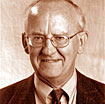Commentary on Ezekiel 34:11-16, 20-24
The Times They Are A-Changin’
These days at the end of November are a season of changing times.
The elections are over and newly elected officials prepare to take their positions. The Pentecost season comes to an end and Advent begins next Sunday. The festival called “Christ the King” is eclipsed for both church and world by the Thanksgiving holiday which marks the beginning of the Christmas shopping season.
In this atmosphere of changing times and seasons, the words of Ezekiel 34 have an important message for all who identify themselves as the “sheep of his pasture” or the people of God (Psalm 95:7).
Ezekiel 34 is addressed to those people of God who have been living in exile in Babylon. I am expanding the lectionary text to include verses 1-10 which is essential for understanding what follows. Following will be brief comments on Psalm 95 and Matthew 25, other texts for the day.
The Failure of the Politicians (Ezekiel 34:1-10)
The first saying in this chapter begins with “Thus says the Lord God” and then continues with a harsh word directed at the “shepherds” which is a common metaphor for kings, or political leaders. The saying begins with “hoy” usually translated as “woe” in prophetic writings; the sense of the word is to announce doom, even the funeral of the ones being addressed (cf. the NIV “woe”).
These “shepherds” have totally failed in their responsibilities. Instead of feeding their sheep they have been fattening themselves. They have neglected the sick, the injured, the lost. Their rule has not been kind but harsh. The “scattered” sheep is a clear reference to the exile. The saying consists of a sharp criticism of the failure of the shepherds, but with a glimmer of hope of rescue for the sheep, i.e. the people Israel.
Applied to our own time, this criticism of Israel’s leaders has a word for those who hold public or pastoral (the word “pastor” comes from the Latin word for “shepherd”) office. By telling what these leaders have failed to do in Ezekiel’s time, they give a picture off what public officials ought to be doing.
Bob Dylan’s song catches the sense of this first part of our text effectively:
Come senators, congressmen
Please heed the call
Don’t stand in the doorway
Don’t block up the hall…
There’s a battle outside
And it is a ragin’
It’ll soon shake your windows
And rattle your walls
For the times they are a changin’.
Put succinctly, Ezekiel the pastor to those in exile says to the political leaders of his time, “You shepherds have fed yourselves and have not fed my sheep.” These leaders ought to be caring for the sheep, not exploiting them and fattening their own lives. In these times that are a-changing, both world and church need politicians and pastors who will care for their people responsibly.
A Search and Rescue Operation (Ezekiel 34:11-16)
And now for the good news. The people’s leaders have failed but there is a search and rescue operation going on. Everyone knows the story Jesus told about the good shepherd who went in search of the one sheep that was lost (Luke 15:3-7). Now, says Ezekiel, just such an operation is going on.
The Lord, the Good Shepherd, has not forsaken those who are scattered in the gloom and darkness of exile, but is searching them out. That God will rescue them and bring them home (13-14). That God will make them to lie down in green pastures and will be their caring Shepherd (15-16). And they will be fed with justice (Hebrew, mishpat) which is the final, climatic word in this saying in both the Hebrew and English.
At this point the preacher may wish to digress briefly and say something about the prophetic notion of justice. Justice (mishpat) is the expected response of God’s people to what God has done for them (Isaiah 5:1-7). It is a response which is not static but dynamic (Amos 5:21-14; Micah 6:6-8) and which involves taking up the cause of the powerless — represented by the widow, the orphan and the poor (Isaiah 1:17; 21-26; 10:1-4). In our time, as in Isaiah’s, the special responsibility for those in positions of public responsibility is care for the powerless (Isaiah 10:1-4; Bob Dylan’s song).
So What’s This Got To Do With Us? (Psalm 95; Matthew 25)
This text from Ezekiel 34 suggests application for us in two ways.
First, verses 1-10 can remind all who hold positions of leadership in public or church life of their responsibilities. They will want to look at the mirror in Ezekiel 34:1-10 and see whether they recognize their own image there.
Second, the Psalm for this Sunday can serve to remind us who we are. The refrain tells us who God is and who we are:
For he is our God,
And we are the people of his pasture,
And the sheep of his hand (Psalm 95:7).
We are sheep and the Lord is our shepherd! Psalm 23 tells us about that. Jesus spoke about that in Luke 15. It makes a great deal of difference, when you are lost (in the night of despair and depression, or in the reality of a coal mine or the collapse of a building) to know that there is a search operation going on! The Gospel of John tells us that we do have a Good Shepherd who is roaming the world searching for the lost — none other than Jesus Christ (John 10).
Finally, the Matthew 25 text tells us something of how we ought to live. Once we’ve been found we are asked to become a part of God’s search operation. Note the two groups described in this text. Neither group knew what they had been doing (verses 37, 44). Their acts of kindness or of neglect turn out to have been acts directed toward the Lord himself.

November 20, 2011